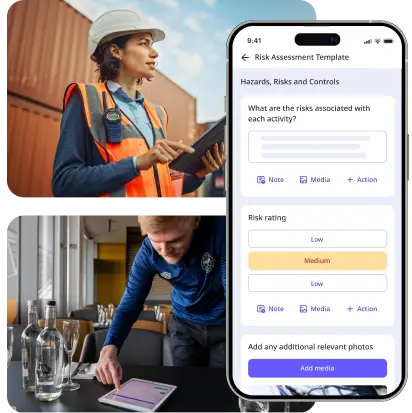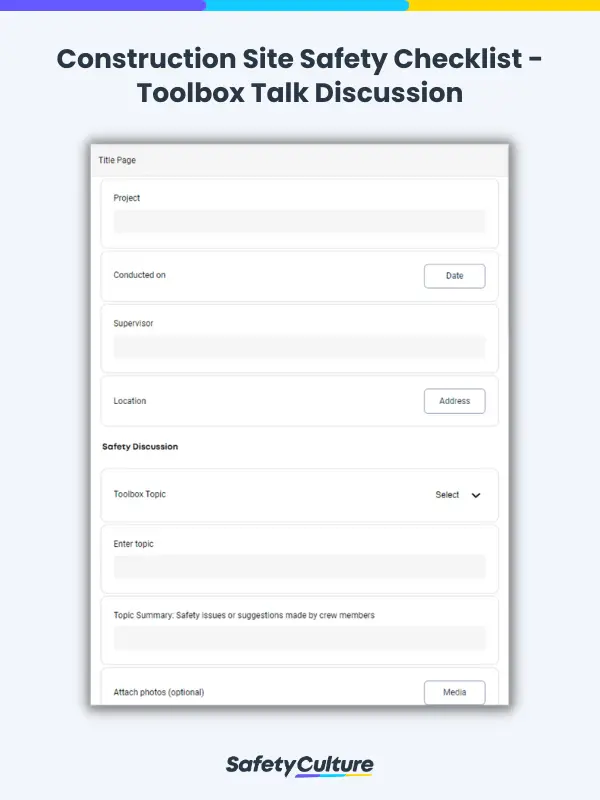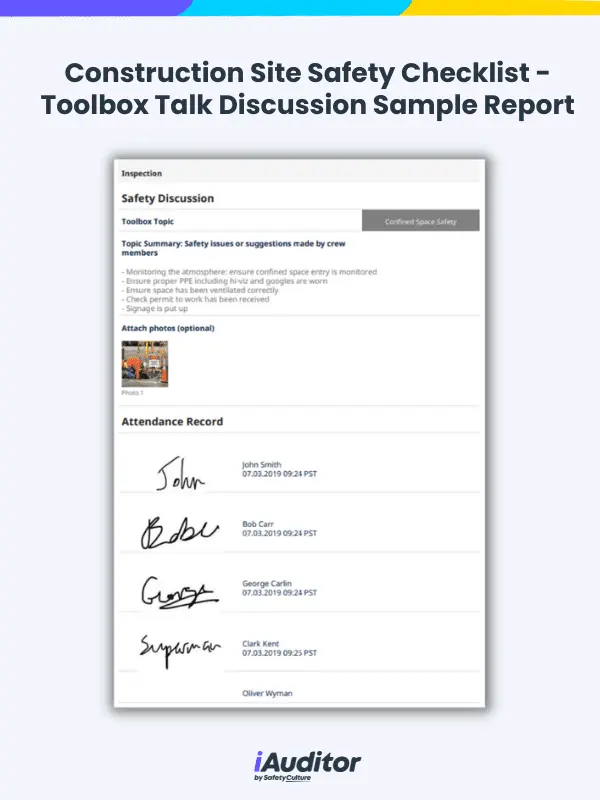What is a Construction Checklist?
A construction checklist is a document used for keeping track of tasks, items, processes, and important information during construction. Construction checklists can help contractors optimize the promotion and improvement of workplace safety for everyone involved in the construction site.
Importance
Having a construction checklist can be very beneficial to your business. Primarily, a construction checklist can help ensure the smooth running of your processes by following all the necessary steps and requirements for a task. In the process, you can also ensure that all safety protocols and necessary government laws are followed, as well as building regulations, codes, and internal quality standards.
These checklists are also excellent tools that can be used in a variety of construction safety inspections with the intention to:
- Identify potential risks associated with job tasks
- Perform regular tools and equipment checks
- Implement safety measures and protocols for employees to adhere to and comply with to prevent injuries and workplace deaths
Uses and Types of Construction Checklists
You can use a construction checklist in any part of your construction project. The construction process involves many people, departments, and steps, so having a checklist for each aspect of it can help streamline processes and create a more efficient work environment.
The use case for construction checklists can be classified into the following types:
- Meetings and discussions: Construction projects often require many meetings, and it is common to have a checklist for each one to ensure that all important topics are covered and that all questions are answered.
- Site inspections: A major part of any construction project is inspecting the site where it will happen. It is important to have a checklist for this to keep track of your findings, manage issues, and comply with your client’s needs and legal requirements.
- Quality control: In all stages of construction, quality control and assurance will always come up. Quality checkers and project heads can benefit from having a construction checklist to help improve quality control and assurance practices, as well as empower their staff to also identify points for improvement. Use a powerful construction quality control software to make this process efficient.
- Equipment management: Construction management often includes the use of a specific equipment checklist for projects to ensure their effectiveness, safety, and usability for a task.
- General record management: While each part of the construction phase may already have its own checklist, some managers create larger, more general checklists to view all tasks, issues, and processes at a glance.
How Do You Create A General Checklist For A Construction Project?
To create a checklist for your general construction needs and record management, consider the following:
- Purpose of the project: What is the project about?
- Client’s needs: What is the client looking for?
- Feasibility: Do the client’s needs and the company’s budget and resources align?
- Safety: How can we ensure the safety of everyone in the project while achieving quality results?
During each phase of the construction process, you should revisit your general construction checklist regularly. Ideally, your construction checklist should be discussed in every phase as part of your toolbox talk. This makes it easier to ensure everyone knows their responsibilities and duties, as well as set expectations for the day or project ahead.
It would also be more beneficial to you and your workflows to use a digital checklist to create your general construction checklist. A digital checklist works the same way pen-and-paper checklists do but is easier to store and access when on the go. Digital checklist apps also provide more functionality to your checklists, allowing you to not only keep track of tasks and processes but also:
- Attach photos and notes
- Identify problems
- Address issues
- Share your checklists
FAQs about Construction Checklists
What are the phases of construction?
Who uses a construction checklist?
When is the best time to use a construction checklist?




